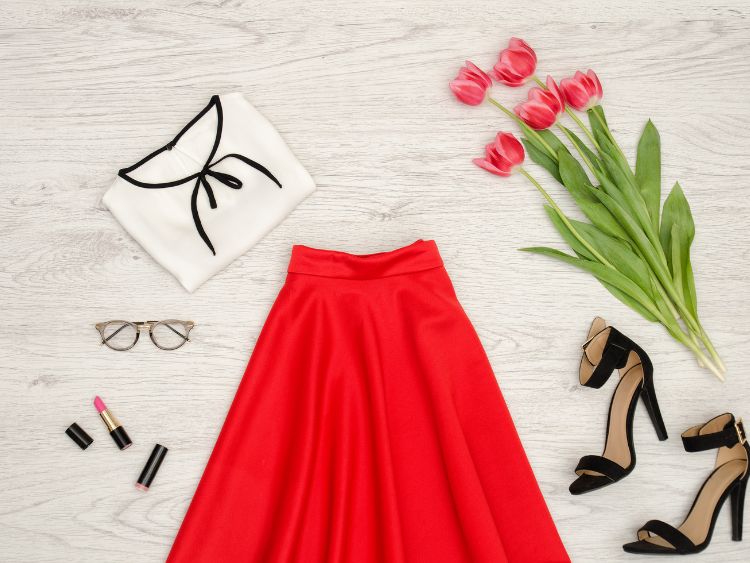Fashion Week has become synonymous with glitz, glamour, and the avant-garde. It’s where the biggest names in the fashion industry gather to showcase their latest collections and where trends are born. But what exactly is Fashion Week, and why does it hold such a pivotal role in the world of style?
What is Fashion Week?
Fashion Week is a semi-annual event where designers, models, celebrities, and fashion enthusiasts come together to preview upcoming trends. It’s a time for major designers to reveal their collections for the upcoming seasons, with the events typically taking place in key fashion capitals like New York, Paris, Milan, and London.
Fashion Week is held twice a year—once in February, to present fall/winter collections, and again in September, for spring/summer collections. Each city puts its unique spin on the event, making every edition of Fashion Week a thrilling experience for attendees and viewers alike.
The History of Fashion Week
While today’s Fashion Weeks are international spectacles, the origins of this event are relatively modest. The first-ever “Fashion Week” took place in New York City in 1943 during World War II. This event, known as “Press Week,” was created to divert attention away from Paris, as the war made it impossible for American journalists to travel to France to see the Paris collections. Press Week was an instant success, and over time, the idea spread to other cities.
Major Fashion Week Cities
Fashion Week is now celebrated in various cities around the globe, but the “Big Four” are the most prestigious:
- New York Fashion Week: Known for its cutting-edge designs and trendsetting styles, New York Fashion Week kicks off the fashion season in early February and September. American designers often focus on wearability and innovation, appealing to the commercial market.
- London Fashion Week: London’s style is edgy and rebellious. Designers here push the boundaries of fashion with unconventional, avant-garde pieces that often challenge the norms of high fashion.
- Milan Fashion Week: Milan is synonymous with luxury. Italian designers such as Gucci, Prada, and Dolce & Gabbana bring elegance and opulence to the runway, with a focus on craftsmanship and detail.
- Paris Fashion Week: As the birthplace of haute couture, Paris is the epitome of fashion. The city’s shows are the most anticipated, with brands like Chanel, Louis Vuitton, and Dior showcasing the pinnacle of fashion artistry.
The Role of Fashion Week in the Industry
Fashion Week serves as the ultimate platform for designers to present their collections to buyers, media, and influencers. It’s where trends are set for the upcoming season, and designers get a sense of how their collections will be received in the market. While not every piece that graces the runway will end up on store racks, Fashion Week is a critical component in shaping what we’ll see in stores and on the streets.
Fashion Week also plays a pivotal role in the careers of models, stylists, and photographers. Walking the runway during one of these high-profile events can be a career-defining moment for a model, while stylists and photographers gain exposure by working with top designers.
What Happens During Fashion Week?
You might be wondering, what’s the buzz all about? Well, Fashion Week is much more than just beautiful people walking down the runway in designer clothes. It’s a dynamic experience, combining fashion, art, music, and culture.
- Runway Shows: The heart of Fashion Week, runway shows are where designers unveil their latest collections. These events are invitation-only and usually attended by fashion editors, buyers, influencers, and celebrities.
- Presentations and Exhibitions: Some designers opt for presentations over traditional runway shows. These events are more intimate, allowing guests to view the collection up close.
- Parties and After-Parties: Fashion Week wouldn’t be complete without the star-studded parties that follow the shows. These events are often more exclusive than the shows themselves and provide an opportunity for the industry elite to network.
- Street Style: Fashion Week isn’t just about what happens on the runway. The streets outside the venues are a fashion show in themselves. Influencers, celebrities, and fashion enthusiasts don their most stylish outfits, turning the sidewalks into an impromptu runway.
How Fashion Week Impacts Trends
Have you ever noticed how quickly certain trends take off after Fashion Week? That’s because these events set the tone for what will be “in” for the next season. Buyers from major retailers attend shows to see what pieces they want to stock, and fashion editors take notes on trends to highlight in magazines and online platforms.
Once Fashion Week is over, you’ll start to see these trends filter down into fast fashion retailers, who are quick to produce affordable versions of the latest runway looks. Before you know it, the outfits once seen only on the catwalk will be available to the masses.
The Digital Revolution and Fashion Week
Over the last decade, Fashion Week has gone through a transformation, thanks to the digital revolution. While attending Fashion Week used to be reserved for industry insiders, the event is now accessible to millions around the world through live streams, social media, and fashion blogs.
Instagram, TikTok, and YouTube have played a huge role in democratizing Fashion Week. Influencers provide behind-the-scenes access, runway clips go viral, and brands now engage directly with consumers via social media. In fact, many designers even showcase their collections exclusively online, creating digital fashion shows that reach audiences globally.
Sustainability and Fashion Week
Fashion Week hasn’t been without its controversies, especially regarding sustainability. The fashion industry is one of the most polluting in the world, and many critics argue that the fast-paced nature of Fashion Week contributes to overconsumption and waste.
However, recent Fashion Weeks have seen a push towards more sustainable practices. Designers are now using eco-friendly materials, reducing waste, and promoting ethical production methods. Many fashion houses are also rethinking the traditional format, opting for smaller collections or even skipping a season to reduce their environmental impact.
FAQs About Fashion Week
- Who can attend Fashion Week?
Fashion Week events are generally by invitation only, and attendees include fashion editors, buyers, celebrities, and influencers. However, with the rise of digital platforms, anyone can now experience Fashion Week through live streams and social media. - How long does Fashion Week last?
Fashion Week typically lasts about seven days in each city, though it may vary slightly depending on the number of designers participating. - What’s the difference between haute couture and ready-to-wear?
Haute couture refers to custom-fitted, handmade garments that are produced in very limited quantities, often by high-end designers in Paris. Ready-to-wear, or prêt-à-porter, is mass-produced clothing that is sold in stores. - Can anyone become a part of Fashion Week?
It’s a competitive industry, but there are many paths to becoming involved in Fashion Week. Aspiring models, designers, stylists, and photographers often start by working with smaller brands or assisting established professionals before breaking into the big leagues. - How do trends from Fashion Week affect everyday fashion?
Trends from Fashion Week quickly make their way into mainstream fashion. Fast fashion retailers often produce affordable versions of runway looks, and these pieces eventually become available to everyday consumers.
Conclusion
Fashion Week is an exciting time for anyone passionate about style. From its historic beginnings in New York to the digital innovations of today, it continues to be the ultimate celebration of fashion. It’s more than just clothes—it’s a showcase of creativity, craftsmanship, and culture. And while it may seem exclusive, Fashion Week’s influence on what we wear reaches far beyond the runway, shaping the very fabric of everyday fashion.
For more information about Fashion Week and the fashion industry, check out these authoritative sources:






